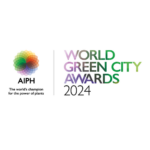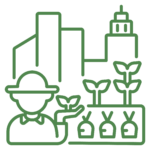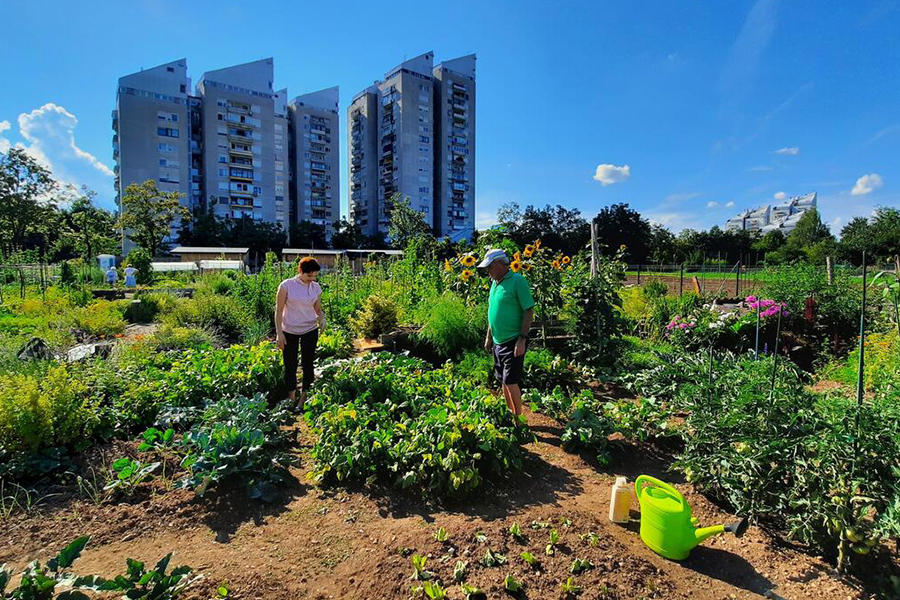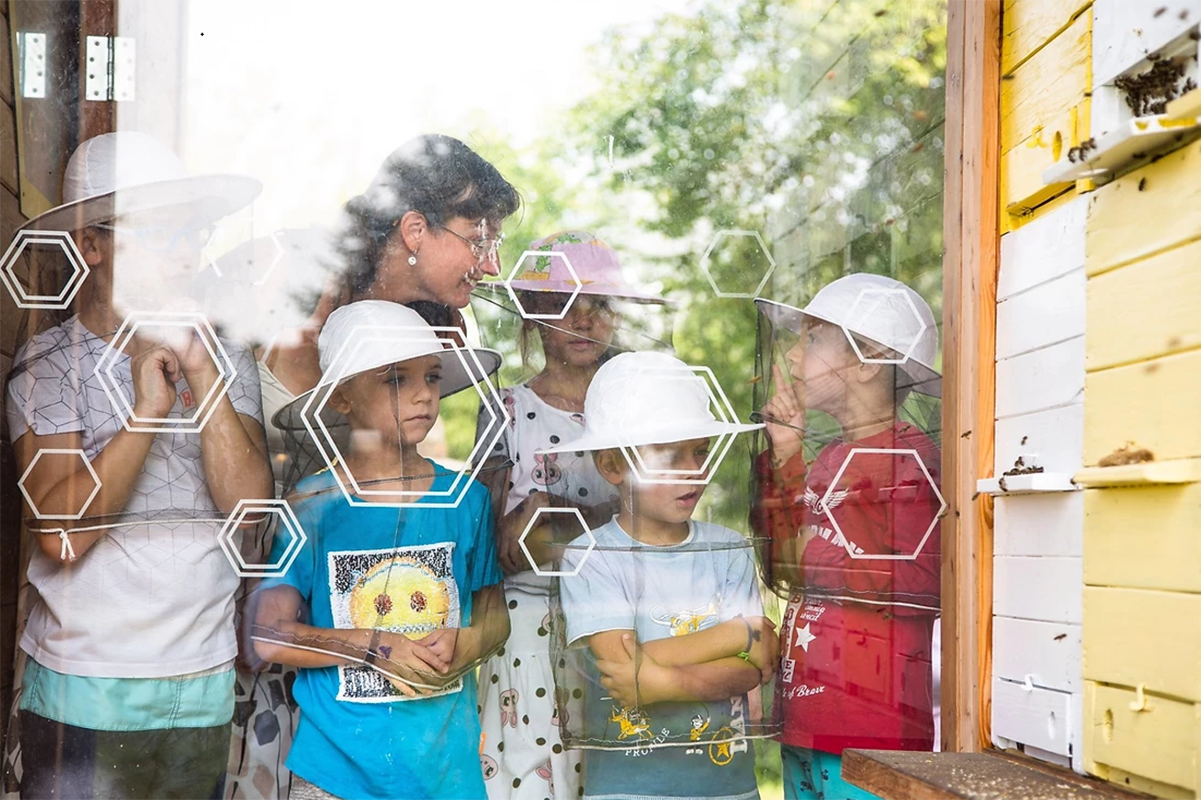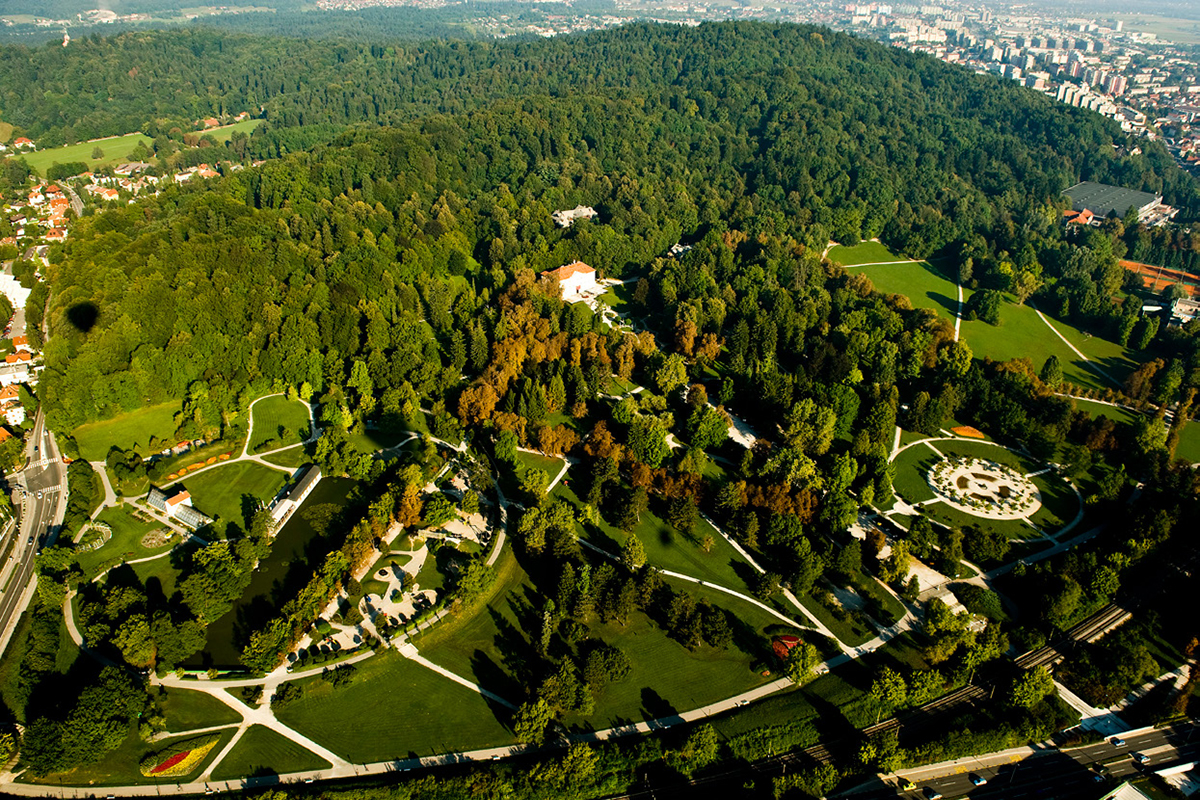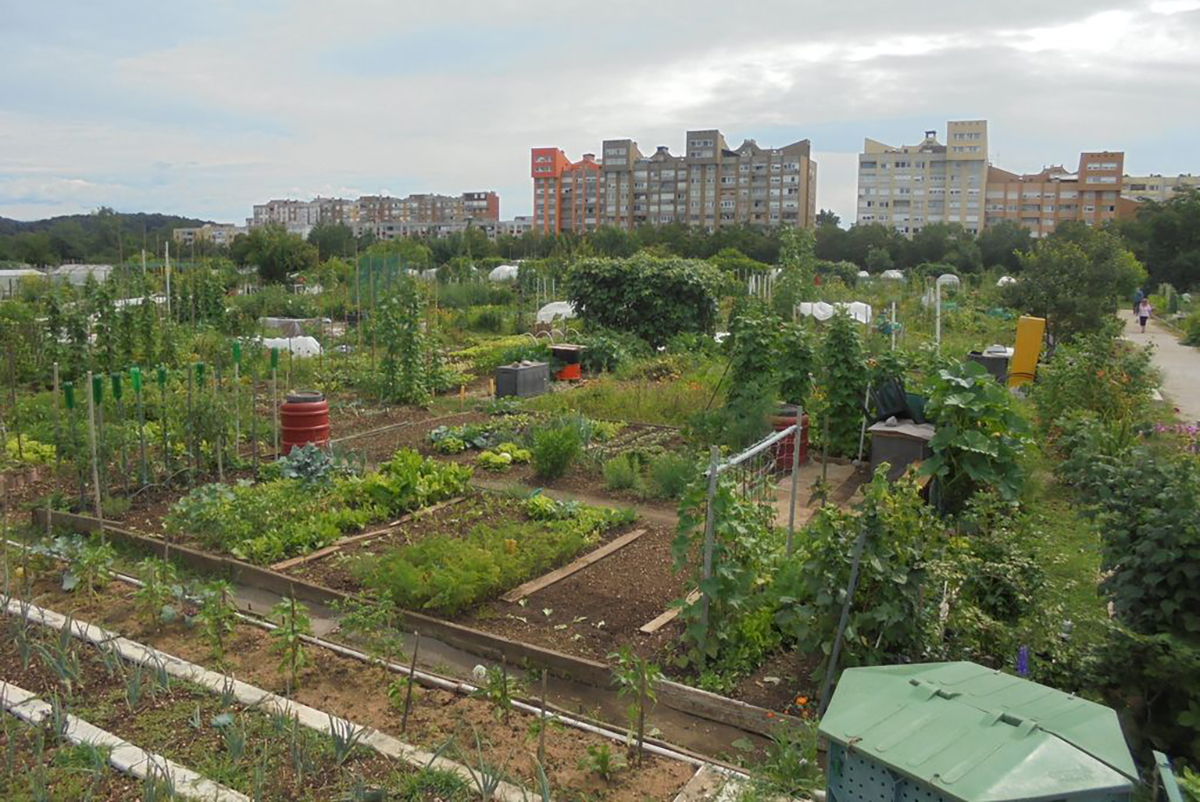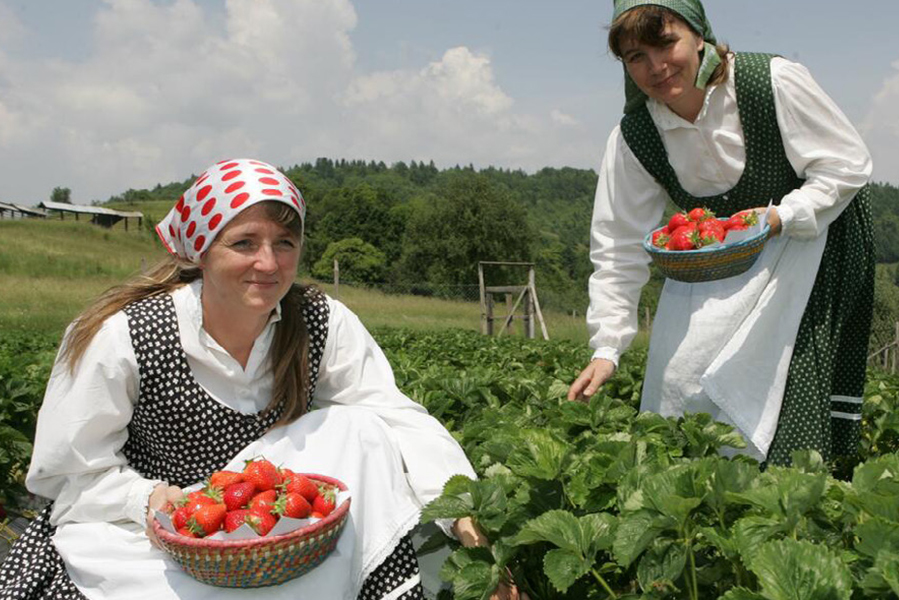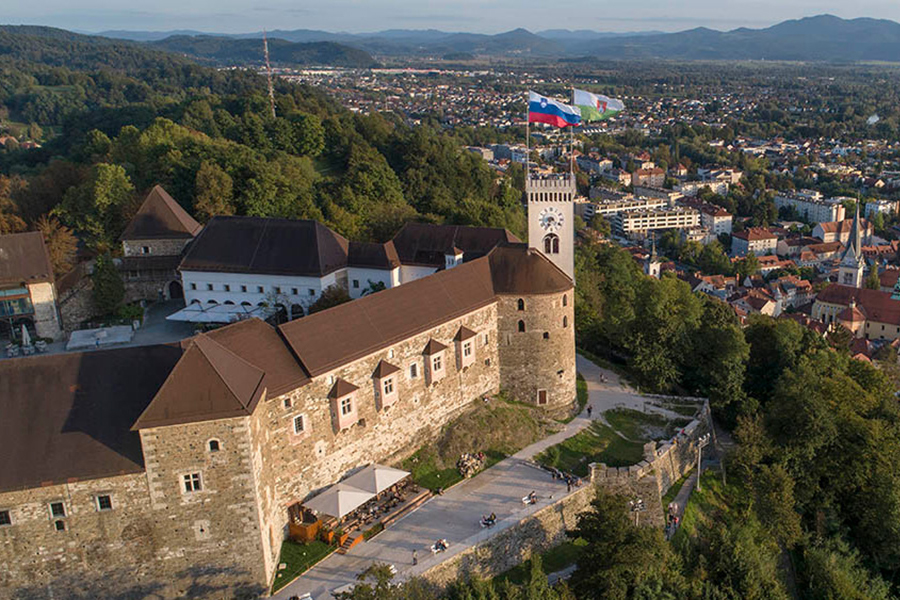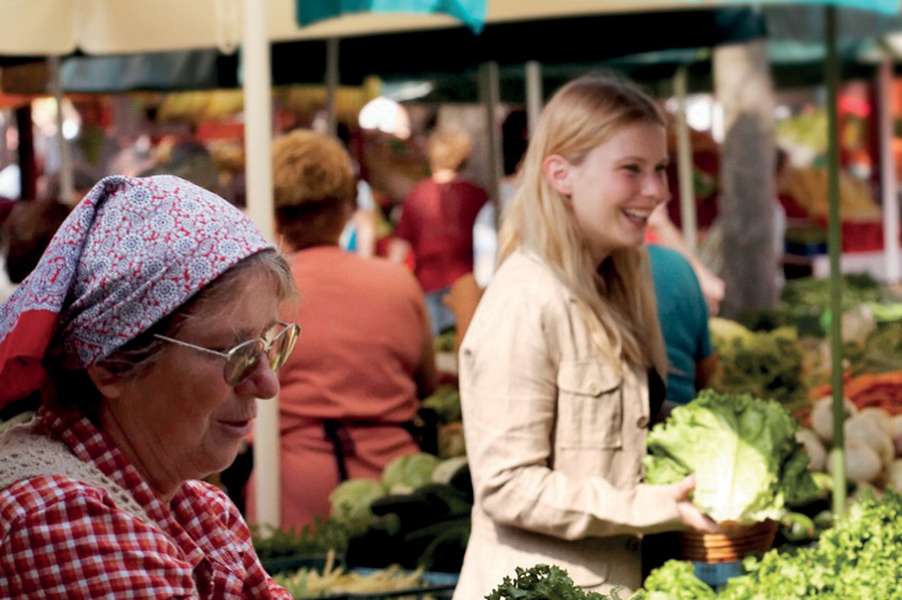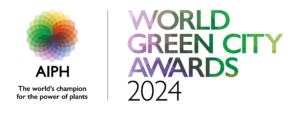Benefits of Urban Greening
Harnessing the Power of Plants
Despite the fact that Ljubljana has an agricultural hinterland, where we regularly take care of both the use of crop rotation and encouraging farmers to garden in an ecological or integrated way, we also encourage them to take care of their meadows and provide extensive mowing to increase the biodiversity of these areas. Within the City, we take care of greening the canopies of bus stations and we plant trees in the City (the City has as many as 35,000 additional trees in the City centre, despite the fact that the entire area of Ljubljana is covered by 41% forest) to lower the temperature in the City. With a special programme of late mowing of public green areas, we take care of the increase of wild pollinators in the City. We regularly monitor pollinators and we also conducted a professional survey of pollen diversity in urban honey and found pollen from over 35 plant species. This means that we can say that the honey is of exceptional quality and due to the absence of pesticides in the City, it is also extremely clean.
Delivering Multiple Benefits
Through the introduction of green manure into agriculture, where phacelia and buckwheat dominate, we established a pasture for bees and thereby connected two industries – agriculture and beekeeping. By limiting synthetic or using organic preparations to maintain the health of the fruit trees, we have reduced the damage to bees in hilly rural areas in Ljubljana. Citizens who garden in public gardens are encouraged to use mixed crops and make sure that different plants attract pollinators, which ensures a higher yield, and we also encourage them to put mulch on the beds, which also reduces water consumption. The City regularly collects organic waste and produces compost, which is available to gardeners, users of public gardens must take care of their own compost, and farmers, by controlled introduction of fertilisers into the soil, indirectly also take care of the quality of drinking water in the City
The City’s Bold and Innovative Vision
Particular emphasis is placed on the links between supply and demand, based on building a responsible society that understands the importance of localism, preserving the environment and natural resources, and recognises the importance of a circular economy.
All the models that we use include different aspects of rural development and urban farming, and allow for the development of various activities that preserve and develop the social potential of rural areas and enable the rural population to remain in rural areas. Thus, providing a living space and a green hinterland for the City, with all its geographic and socio-sociological elements.
Achieving the highest possible level of self-sufficiency remains one of the key tasks of every local community. At the same time, rural areas, through the diversification of agricultural holdings, offer a range of other services to urban dwellers. These are becoming increasingly important in the light of climate change, epidemics and other external global impacts, as they contribute to making local communities more resilient to unexpected events and improve the quality of life. In order to achieve a higher level of self-sufficiency, it is crucial that locally-produced food is consumed within the Ljubljana area as much as possible. This not only completes but also strengthens the short local supply chains and, consequently, strengthens rural areas.
Partnerships and Collaboration
Urban and peri-urban farming contributes significantly to sustainable urban development, with economic, socio-cultural, environmental and psychological benefits. They can create employment opportunities, increase food self-sufficiency, food security and accessibility. They can have a positive impact on people’s diet, health, physical activity and wellbeing. They can foster a sense of belonging to a place and a community, emphasise attachment to an area and a collective identity, develop people’s skills and knowledge, and enhance gender equality. The groups involved in the identified practises are very diverse (especially children and adolescents). Vulnerable groups are usually unable to organise and mobilise themselves and need help, usually from NGOs. On the other hand, well-organised citizens are successful and proactive, but cannot be classified as vulnerable. The most successful cases are those where many different stakeholders help each other and where people from vulnerable groups mix with people from non-vulnerable groups.
Connecting providers is not only key to ensuring food security, but also to increasing volumes, the variety of products, quality standards and raising the profile of rural areas and their products and services. However, to achieve this goal, it is essential to build mutual trust between producers or providers of related and interconnected services. Only then can promotion, setting up new sales channels and synergy-seeking activities take place.
All the contents we develop connect the widest spectrum of different groups – primarily agriculture and economic development. The countryside represents great tourist potential and offers numerous economic development opportunities for its population.
Addressing Urban Challenges
The Issue
In Ljubljana, the natural conditions are not the most favourable for agriculture. With only 40% of farmland with a high or very high soil productivity index and a further 20% with medium soil productivity index. Ljubljana has less favoured areas (mountain areas, the Ljubljana Marshes on more than 50% of agricultural land); sufficient rainfall, but a seasonal high vulnerability to drought (on gravel and sand) and stagnant water (on marshes and along watercourses). A large proportion of agricultural land and forests are in areas with protective measures, which require specific management: large proportions of the agricultural land lie in the Ljubljana Marshes Landscape Park and the Natura 2000 area. The State has not identified permanently protected agricultural land yet, and Ljubljana must do so in the next amendment of the Municipal Zoning Plan.
There are complex and time-consuming land consolidation and farm relocation procedures. Forest owners generally have little knowledge of their forests and do not actively manage them. There is a low level of trust between partners at all levels – a low level of cooperation, and a low level of awareness among those responsible for preserving village centres and landowners.
A Nature Orientated Future
The preservation of the rural area provides the City with a green space for various social activities from recreation to education, and enables the strengthening of the community and the development of a good attitude towards the local area and its offer. Keeping the farmer on the land as the only and best caretaker of the cultural landscape enables the long-term relegation of the identity of the place. Taking care of the soil and drinking water with the help of the appropriate development of agriculture enables a quality of living in the City. Local self-sufficiency in food enables the sovereignty and survival of the community, especially in the face of increasing weather changes. Educating the youngest and connecting them with nature builds a community of responsible citizens who will know how to treat their environment conscientiously. The preservation of agricultural land on the outskirts of the City and the active agricultural population enables the limitation of urbanisation.
Nature Positive Solutions
Implementation
Once the contents were placed in the strategic guidelines and in the Protected Environment Programme, Ljubljana started implementing various measures and this became a constant in the way we work. Certain measures require the cooperation of various departments of the City administration, where there is always enough space for dialogue. On the basis of the foreseen strategic solutions, green areas are planned, environmentally important areas are protected from biotically diverse meadows to wetlands, and the development of beekeeping is enabled both in the City and in the countryside. Space is provided for the expansion and rounding of agricultural areas, which enable the development and activity of farms, which supply the City with food. The rounding of agricultural areas is improved and the dispersion of plots is eliminated. The City plans its green neighbourhoods and cares that each part has its own area with gardens.
Feasibility
The advantage of Ljubljana is definitely in the fact that, from the very beginning, it provided its own funds for the development of the described programmes and activities in the field of environmental protection and the development of rural and urban agriculture. In this way, it achieved that the activities continued over the decades and did not depend on project funds. In the future, Ljubljana intends to apply for EU funds for the implementation of certain activities in the field of urban agriculture, because it will enable not only the acquisition of funds, but also the exchange of knowledge and experience with partners in the EU.
Multi-Stakeholder Support
If we look at the diverse structure of stakeholders who are involved in various activities, it immediately becomes clear that we have connected as wide a range of people of the most diverse profiles as possible into various circles. In the countryside, we pay the greatest attention to farmers and support their development, thereby strengthening the food self-sufficiency of the City of Ljubljana. We give special attention to young people in rural areas, for whom we encourage their existence on farms and the continuation of tradition with a variety of supports – from education to financial support for young farmers. From the point of view of urban agriculture, important stakeholders are citizens who want to have a garden for their own food, socialising and spending their free time. Children in schools and kindergartens, through various programmes, learn about food production, from pollination to compost waste processing. An agricultural expert regularly monitors the quality of the soil with various monitoring methods and takes care of the control over the use of pesticides and insecticides. Various formal and informal non-governmental groups bring together like-minded people and take care of their development. A tourist organisation presents the resulting products to the citizens through various events (Countryside Festival, Honey Day…). Different departments of the City of Ljubljana support with urban planning, environmental protection, real estate department, department for economic affairs etc.
Management and Maintenance
With its long-term presence on the ground, the City has managed to build mutual trust between the users of rural areas and City officials. We are constantly present in the field and know the wishes of our stakeholders. We always use a participatory project approach in our work. We follow new trends in the field of rural development and follow valid European trends. We are proactive and always ready for dialogue. We help farmers expand their farms in such a way that this expansion allows them to continue their activities, which allows young people to stay on the farms. We look for different opportunities to grow food in the City and try to arrange at least one area for urban gardens in every neighbourhood. We include nature conservation aspects in all our activities and regularly cooperate with professionals in the search for sonar solutions. We are looking for new opportunities, together with expertise in avoiding the effects of climate change – introducing new cultures and more drought-resistant varieties.
Measuring and Reporting Impact
Monitoring Results
The rural development and urban farming strategy of City of Ljubljana for the programming period 2021–2027 constitutes the basis for preparing annual operational plans for the implementation of the strategy, for planning the implementation of Ljubljana activities and the budget, and for applying projects for the external funding sources identified in the previous section and other available sources.
Monitoring of the implementation of the strategy is foreseen on an ongoing or annual basis. For each measure, a person responsible for its implementation is assigned, and thus for monitoring and reporting on the progress achieved. In this context, the following performance indicators are monitored on an annual basis – let us just list a few:
- Number of allotment gardens managed by the City of Ljubljana.
- Number of bee colonies.
- Number of training courses.
- Number of newly established short supply chains.
- Number of educational farms.
- Number of employees or people with pension insurance at AHs, etc.
Demonstrating Progress
At the time of preparing the strategy, when we also determined various indicators, we managed to create the conditions for various new approaches with various agreements to determine the areas where it is possible to farm regardless of whether it is agricultural land or not. In this way, we opened the door also to various urban food factories, where it will be possible to grow different types of food in a sustainable way in highly controlled environments – an example is aquaponics.
Constant monitoring of the results enables us to make corrections in the support systems, which are intended for our users – from professional foundations to financial assistance. Monitoring makes it possible to identify gaps that can be filled with various EU projects, the results of which will enable the development of a certain segment. Behind each item or indicator outlined in our strategy is a person.
Measuring Impact
With our strategic orientations, we outlined a high-quality development path for urban agriculture, food self-sufficiency, and opened the way for various social structures that enable the education and development of individuals and society, as well as the building of a connected community. The performance indicators we use are both quantitative and qualitative – for example, success for us means maintaining the number of associations /NGO’s in the countryside, as this means that the countryside is alive. With the help of various records, experts in the field and surveys or various censuses, we monitor various topics: the number of organic growers, the number of new urban gardens, the area of greenhouses, the area of areas where late mowing is carried out, the number of nurseries that are included in the API programme kindergarten, the number of kindergartens that reach a 20% level of use of produced food in the preparation of meals, etc.
Learning and Transferability
Adaption and Enhancement
When preparing the strategy, we relied heavily on the opinions of citizens and various target groups. On the basis of their proposals, a SWOT analysis was prepared, which enabled us to properly plan new strategic goals. Stakeholders highlighted the following weaknesses, among others:
Small farm holdings and fragmented landholdings; The State has not identified permanently protected agricultural land; Complex and time-consuming land consolidation and farm relocation procedures.
Forest owners generally have little knowledge of their forests and do not actively manage them; A low level of trust between partners at all levels – a low level of cooperation; A low level of awareness among those responsible for preserving village centres and landowners.
Helping farmers without their own co-participation.
Lack of communication resulting in poor information.
Potential for Replication
Ljubljana has developed a special cooperation in all activities related to biodiversity in the City, with the Ljubljana Botanical Garden, which, in addition to appropriate professional guidance, also provides the City with appropriate planting material for all green activities in the City. Every year, during Earth Day, the distribution of native honey plants to the town is held, where again two good practices are nicely combined – biodiversity and care for bees and pollinators. For many years, the City has been planting perennials on public areas, but recently it has also been replacing them with native perennials, which are the most adapted and require the least maintenance. The Botanic Garden also directs methods of late mowing of grassy areas with us, in order to increase biodiversity as much as possible for the benefit of wild pollinators. With slogans such as ‘We will mow when the bees feed themselves’, we not only inform others about our work but also encourage them to do the same themselves.
Inspiring Other Cities
We had particularly great success with the dissemination of our good practice Bee Path in Ljubljana to nine other European cities, and Slovenian cities are also following the idea of an API kindergarten. As part of the BeePathNet and BeePathNet-Reloaded (URBACT III – Transfer Network) project, good practises related to biodiversity and the introduction of urban agriculture have been adopted by the City of Amarante (Portugal), Nea Propontida (Greece), Sosnowiec and Bydgoszcz (Poland), Budapest – XII District and Cesena and Begamo (Italy). Everything from late mowing to the planting of native honey plants, to the celebration of May 20 – World Bee Day and the education of the youngest.
Resilience
Reducing Negative Impacts and Ensuring Sustainability
Efforts have been made by creating short food-supply chains, opening local sales premises on farms, creating hiking trails between individual farmers, creating the possibility to grow food in public gardens while using public transport for access and rainwater for watering. We make sure that the roofs of bus stops have green roofs and we have a rule that every roof in the City that measures more than 400m2 must be green. We set up urban apiaries in the City and constantly check the content of fertilisers, pesticides and insecticides in the soil. We ensure that farmers plant weather-resistant varieties and help them set up anti-flow nets and sprinkler systems in case of frost. We develop various forms of recreation, from hiking trails to recreational polygons on the doorstep of the City. We preserve forest and agricultural areas, which enable one of the largest sinks/deposits of carbon in the soil.
All efforts are therefore aimed at reducing the carbon footprint.
Environmental Considerations
For many years, we have been making sure that the experts correctly advise farmers in choosing the varieties that are most suitable for both the soil base and the climatic conditions. Nowadays, farmers are planting new varieties resistant to both climatic conditions and the growing number of pests. Especially in an urban environment, the City plants perennials and native plants in public areas that are adapted to our climate, which reduces the need for watering and maintenance. With late mowing, grass areas are strengthened and plants come back, which enables the existence and development of wild pollinators. The use of rainwater for watering vegetables is foreseen in public gardens. Users collect water from roofs of shared or individual buildings and store it in closed water containers to prevent the development of mosquitos.
Use of Natural Resources
The first concern of the City is to preserve the agricultural areas, to ensure the preservation and good management of the forest, to ensure that there is enough food in the City and that the citizens understand the importance of locally produced food. By introducing environmentally friendly technologies – organic agriculture, integrated agriculture, permaculture crops and the use of crop rotation, we take care of maintaining the quality of the soil. We have a special type of farming with agricultural land in water protection areas where only organic farming and limited use of machinery is allowed. In the new programme period, we encourage farmers to join irrigated cooperatives and, through irrigation (groundwater and water from two Ljubljana rivers), not only increase their crop production, but also mitigate the effects of climate change. By planting suitable vegetables for certain types of soil as well as for our climate, the need for watering is reduced and the consequences of droughts are negligible. We achieve all this by selecting appropriate technologies. Farmers, as well as users of urban gardens, too often put too much manure in the soil, which causes fertilisers to wash into the ground water and cause pollution. By constantly monitoring these areas, we not only educate farmers, but also take care of the appropriate use of fertilisers and take care of healthy and clean soil.















